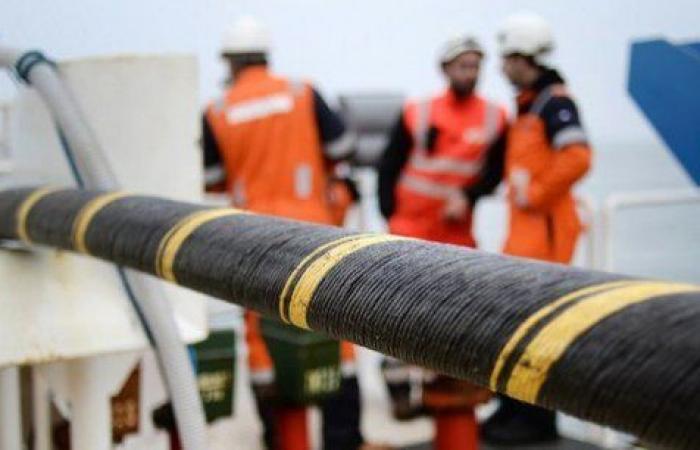A symbolic visit, for a strategic issue. The Minister of Economy, Finance and Industry, Antoine Armand, is expected late morning, this Tuesday, November 5, at the Alcatel Submarine Networks (ASN) industrial site in Calais (Pas-de-Calais). ) to ratify the acquisition of a majority stake by the State. In the midst of the budgetary debate in Parliament and the desire of certain deputies to question the State's participation in order to save money, the government confirmed the future acquisition of an 80% stake in ASN. Antoine Armand will sign the acquisition contract with Nokia, the current owner, surrounded by the site's 600 employees.
“This is an important acquisition for the State. ASN has 33% of the global market share of submarine cables, which provide connectivity. The company is very present on the connection between Europe and Africa, as well as the Transatlantic connection,” explains Bercy.
According to the minister's entourage, Alcatel Submarine Networks is the only European company capable of manufacturing, installing and maintaining these submarine cables, which can be victims of piracy, or even sabotage, in a tense geopolitical context. An important technology over which France wanted to keep control.
“The state has been trying to regain control over ASN for a while. This is especially the case since the acquisition of Alcatel by the Finnish Nokia. There were a lot of discussions between the two parties,” underlines a union source.
How the State maneuvers so that Alcatel Submarine Networks remains in the French fold
“Operation likely to be profitable”
But at what cost? According to the ministry, “ the state check is estimated at 100 million euros » for the 80% of the capital of the company which employs 1,370 employees in France. However, the agreement leaves the possibility for the State to eventually increase 100% of the capital of Alcatel Submarine Networks. This new investment will thus end up in the hands of the State Participation Agency (APE).
“We arrive with a long-term shareholder vision (…) The challenge is to develop the company's activity. We will keep all jobs and maintain management in place. In the short term, the issue is commercial,” according to the APE, shareholder of 85 strategic companies with a total value of 180 billion euros.
In an uncertain budgetary context, the entourage of the Minister of the Economy wants to be reassuring: the operation is financed through the special allocation account for State financial contributions. This choice would provide financial flexibility, regardless of whether the closing of the operation takes place in 2024 or at the beginning of 2025.
“It is an operation that is expected to be profitable. It is therefore an investment by the State and not an expense. We will focus on developing the growth of ASN,” insists Bercy.
An investment plan to be completed
With a last known turnover of around one billion euros, the government estimates that ASN's turnover ” could double or even triple in the years to come » in the face of growing connectivity needs around the world. The submarine cables activity will be driven in particular by GAFAM, wishing to weave their own digital networks throughout the world.
In order to meet this growing demand, Nokia has invested more than 100 million euros in the Calais site in recent years, while increasing the fleet of boats available to the company, as part of a plan called “ NEO”. “ Nokia has invested heavily in this site in recent years. There is not necessarily a need for an immediate investment in the production tool », Estimates the team of the Minister of the Economy.
A slightly nuanced vision by the unions. “ The NEO plan was to be completed at the end of 2022 to meet demand from 2023. However, this plan is still being deployed », According to a staff representative. This plan, historic in its scale, should allow ASN to have a production capacity of 50,000 kilometers of submarine cables each year. For now, this would be much less. Internally, employees are even worried about a loss of technical skills due to the natural renewal of the workforce. These have increased by 30% since 2019 on the Calais site.
“The arrival of the State as majority shareholder is good news, it’s reassuring. With Nokia, the corporate cultures were different and we felt they were far from our issues,” admits a union source.






